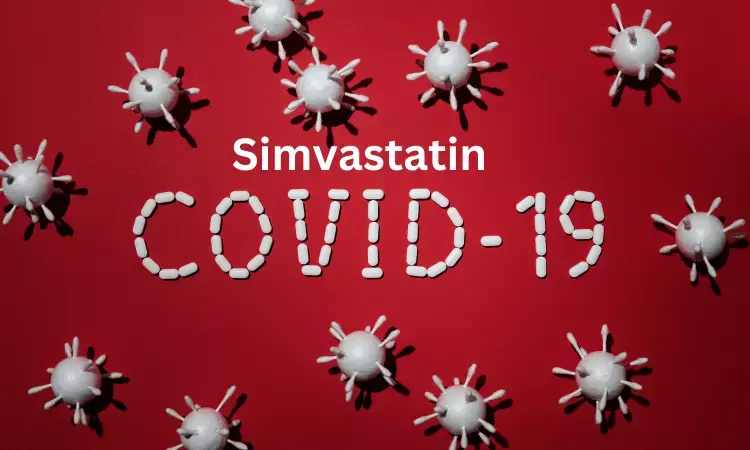- Home
- Medical news & Guidelines
- Anesthesiology
- Cardiology and CTVS
- Critical Care
- Dentistry
- Dermatology
- Diabetes and Endocrinology
- ENT
- Gastroenterology
- Medicine
- Nephrology
- Neurology
- Obstretics-Gynaecology
- Oncology
- Ophthalmology
- Orthopaedics
- Pediatrics-Neonatology
- Psychiatry
- Pulmonology
- Radiology
- Surgery
- Urology
- Laboratory Medicine
- Diet
- Nursing
- Paramedical
- Physiotherapy
- Health news
- Fact Check
- Bone Health Fact Check
- Brain Health Fact Check
- Cancer Related Fact Check
- Child Care Fact Check
- Dental and oral health fact check
- Diabetes and metabolic health fact check
- Diet and Nutrition Fact Check
- Eye and ENT Care Fact Check
- Fitness fact check
- Gut health fact check
- Heart health fact check
- Kidney health fact check
- Medical education fact check
- Men's health fact check
- Respiratory fact check
- Skin and hair care fact check
- Vaccine and Immunization fact check
- Women's health fact check
- AYUSH
- State News
- Andaman and Nicobar Islands
- Andhra Pradesh
- Arunachal Pradesh
- Assam
- Bihar
- Chandigarh
- Chattisgarh
- Dadra and Nagar Haveli
- Daman and Diu
- Delhi
- Goa
- Gujarat
- Haryana
- Himachal Pradesh
- Jammu & Kashmir
- Jharkhand
- Karnataka
- Kerala
- Ladakh
- Lakshadweep
- Madhya Pradesh
- Maharashtra
- Manipur
- Meghalaya
- Mizoram
- Nagaland
- Odisha
- Puducherry
- Punjab
- Rajasthan
- Sikkim
- Tamil Nadu
- Telangana
- Tripura
- Uttar Pradesh
- Uttrakhand
- West Bengal
- Medical Education
- Industry
Simvastatin fails to improve outcomes in critically ill Covid-19 patients: NEJM

Simvastatin is prescribed often as it is an inexpensive and widely available medication that is on the World Health Organization (WHO) list of essential medicines and is predominantly used for its lipid-lowering and cardioprotective properties. Reportedly simvastatin also has antiinflammatory and immunomodulatory effects.
There are several effective treatments being evaluated for, mortality among severely ill patients hospitalized with Covid-19 remains considerable, and access to effective treatments for Covid-19, other than dexamethasone, is inequitable. The efficacy of simvastatin in critically ill patients with coronavirus disease 2019 (Covid-19) is unclear.
A new trial in The New England Journal of Medicine evaluated the efficacy of simvastatin and with changing circumstances they report that though recruitment was stopped because cases had decreased, among critically ill patients with Covid-19, simvastatin did not meet the prespecified criteria for superiority to control.
Researchers conducted an international, multifactorial, adaptive platform, randomized, controlled trial, we evaluated simvastatin (80 mg daily) as compared with no statin (control) in critically ill patients with Covid-19 who were not receiving statins at baseline. The primary outcome was respiratory and cardiovascular organ support–free days, assessed on an ordinal scale combining in-hospital death (assigned a value of −1) and days free of organ support through day 21 in survivors; the analyis used a Bayesian hierarchical ordinal model. The adaptive design included prespecified statistical stopping criteria for superiority (>99% posterior probability that the odds ratio was >1) and futility (>95% posterior probability that the odds ratio was <1.2).
The key findings of the study are
• Researchers started enrollment on October 28, 2020. On January 8, 2023, enrollment was closed on the basis of a low anticipated likelihood that prespecified stopping criteria would be met as Covid-19 cases decreased.
• The final analysis included 2684 critically ill patients. The median number of organ support–free days was 11 (interquartile range, −1 to 17) in the simvastatin group and 7 (interquartile range, −1 to 16) in the control group; the posterior median adjusted odds ratio was 1.15 (95% credible interval, 0.98 to 1.34) for simvastatin as compared with control, yielding a 95.9% posterior probability of superiority.
• At 90 days, the hazard ratio for survival was 1.12 (95% credible interval, 0.95 to 1.32), yielding a 91.9% posterior probability of superiority of simvastatin.
• The results of secondary analyses were consistent with those of the primary analysis. Serious adverse events, such as elevated levels of liver enzymes and creatine kinase, were reported more frequently with simvastatin than with control.
Researchers ended that “Although recruitment was stopped because cases had decreased, among critically ill patients with Covid-19, simvastatin did not meet the prespecified criteria for superiority to control.”
Reference: The REMAP-CAP Investigators; Simvastatin in Critically Ill Patients with Covid-19; October 25, 2023; DOI: 10.1056/NEJMoa2309995.
MSc. Neuroscience
Niveditha Subramani a MSc. Neuroscience (Faculty of Medicine) graduate from University of Madras, Chennai. Ambitious in Neuro research having worked in motor diseases and neuron apoptosis is interested in more of new upcoming research and their advancement in field of medicine. She has an engrossed skill towards writing and her roles at Medical dialogue include Sr. Content writer. Her news covers new discoveries and updates in field of medicine. She can be reached at editorial@medicaldialogues.in


